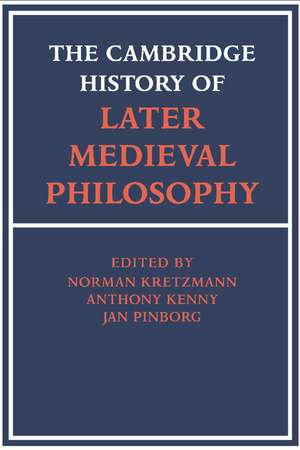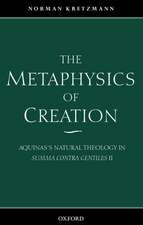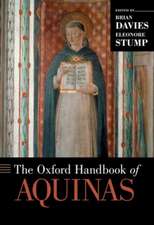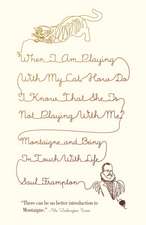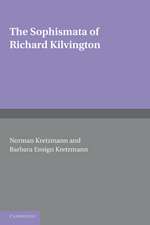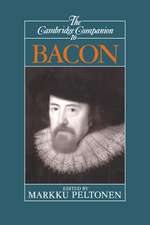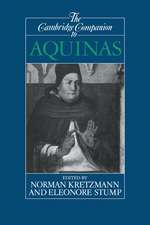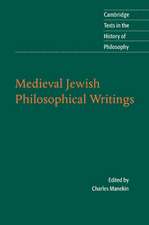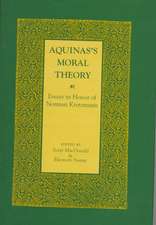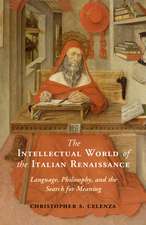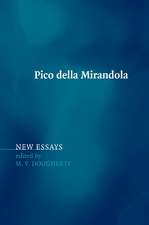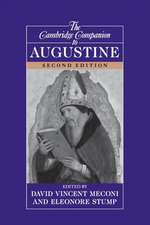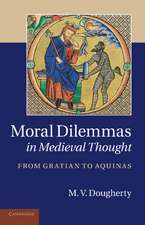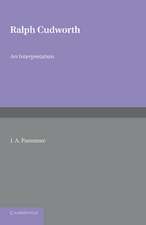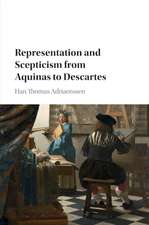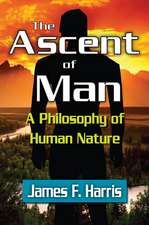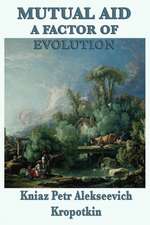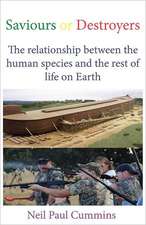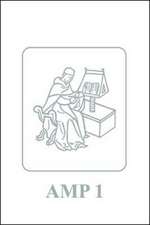The Cambridge History of Later Medieval Philosophy: From the Rediscovery of Aristotle to the Disintegration of Scholasticism, 1100–1600
Editat de Norman Kretzmann, Anthony Kenny, Jan Pinborg, Eleonore Stumpen Limba Engleză Paperback – 28 iul 1988
Preț: 757.86 lei
Preț vechi: 881.23 lei
-14% Nou
Puncte Express: 1137
Preț estimativ în valută:
145.01€ • 151.81$ • 119.99£
145.01€ • 151.81$ • 119.99£
Carte tipărită la comandă
Livrare economică 07-21 aprilie
Preluare comenzi: 021 569.72.76
Specificații
ISBN-13: 9780521369336
ISBN-10: 0521369339
Pagini: 1050
Ilustrații: black & white illustrations
Dimensiuni: 152 x 229 x 66 mm
Greutate: 1.43 kg
Editura: Cambridge University Press
Colecția Cambridge University Press
Locul publicării:New York, United States
ISBN-10: 0521369339
Pagini: 1050
Ilustrații: black & white illustrations
Dimensiuni: 152 x 229 x 66 mm
Greutate: 1.43 kg
Editura: Cambridge University Press
Colecția Cambridge University Press
Locul publicării:New York, United States
Cuprins
Preface; Introduction Norman Kretzmann; Part I. Medieval Philosophical Literature: 1. Medieval philosophical literature Anthony Kenny and Jan Pinborg; Part II. Aristotle in the Middle Ages: 2. Aristotle latinus Bernard G. Dod; 3. The medieval interpretation of Aristotle C. H. Lohr; Part III. The Old Logic: 4. Ancient scholastic logic as the source of medieval scholastic logic Sten Ebbesen; 5. Predicables and categories D. P. Henry; 6. Abelard and the culmination of the old logic Martin M. Tweedale; Part IV. Logic in the High Middle Ages: Semantic Theory: 7. The origins of the theory of the properties of terms L. M. De Rijk; 8. The Oxford and Paris traditions in logic Alain De Libera; 9. The semantics of terms Paul Vincent Spade; 10. The semantics of propositions Gabriel Nuchelmans; 11. Syncategoremata, exponibilia, sophismata Norman Kretzmann; 12. Insolubilia Paul Vincent Spade; 13. Speculative grammar Jan Pinborg; Part V. Logic in the High Middle Ages: Propositions and Modalities: 14. Topics: their development and absorption into consequences Eleonore Stump; 15. Consequences Ivan Boh; 16. Obligations A. From the beginning to the early fourteenth century Eleonore Stump; Obligations B. Developments in the fourteenth century Paul Vincent Spade; 17. Modal logic Simo Knuuttila; 18. Future contingents Calvin Normore; Part VI. Metaphysics and Epistemology: 19. Essence and existence John F. Wippel; 20. Universals in the early fourteenth century Marilyn McCord Adams; 21. Faith, ideas, illuminations and experience Joseph Owen, C.SS.R; 22. Intuitive and abstractive cognition John F. Boiler; 23. Intentions and impositions Christian Knudsen; 24. Demonstrative science Eileen Serene; Part VII. Natural Philosophy: 25. The interpretation of Aristotle's Physics and the science of motion James A. Weisheipl, O.P.; 26. The effect of the condemnation of 1277 Edward Grant; 27. The Oxford calculators Edith Dudley Sylla; 28. Infinity and continuity John E. Murdoch; Part VIII. Philosophy of Mind and Action: 29. The potential and the agent intellect Z. Kuksewicz; 30. Sense, intellect, and imagination in Albert, Thomas, and Siger Edward P. Mahoney; 31. Criticisms of Aristotelian psychology and the Augustinian-Aristotelian synthesis Z. Kuksewicz; 32. Free will and free choice J. B. Korolec; 33. Thomas Aquinas on human action Alan Donagan; Part IX. Ethics: 34. The reception and interpretation of Aristotle's Ethics Georg Wieland; 35. Happiness: the perfection of man Georg Wieland; 36. Conscience Timothy C. Potts; 37. Natural morality and natural law D. E. Luscombe; Part X. Politics: 38. The reception and interpretation of Aristotle's Politics Jean Dunbabin; 39. Rights, natural rights, and the philosophy of law A. S. McGrade; 40. The state of nature and the orign of the state D. E. Luscombe; 41. The just war Jonathan Barnes; Part XI. The Defeat, Neglect, and Revival of Scholasticism: 42. The eclipse of medieval logic E. J. Ashworth; 43. Humanism and the teaching of logic Lisa Jardine; 44. Changes in the approach to language W. Keith Percival; 45. Scholasticism in the seventeenth century John A. Trentman; 46. Neoscholasticism P. J. Fitzpatrick; Biographies; Bibliography; Index nominum; Index rerum.
Recenzii
'The Cambridge History of Later Medieval Philosophy brings together in one volume an impressively large number of short essays [which] … serve as exemplars of the proper way to 'foster a … mutually beneficial relationship between medieval philosophy and contemporary philosophy' … The authors combine their own ample creative insight into significant philosophical issues with a deep understanding of and appreciation for what their medieval interlocutors had to say about those issues. The editors … provide a fine general introduction to medieval philosophical literature and to the difficulties it poses for the contemporary reader, specialist and nonspecialist alike.' The Journal of Philosophy
Descriere
This 1982 book is a history of the great age of scholastism from Abelard to the rejection of Aristotelianism in the Renaissance.
